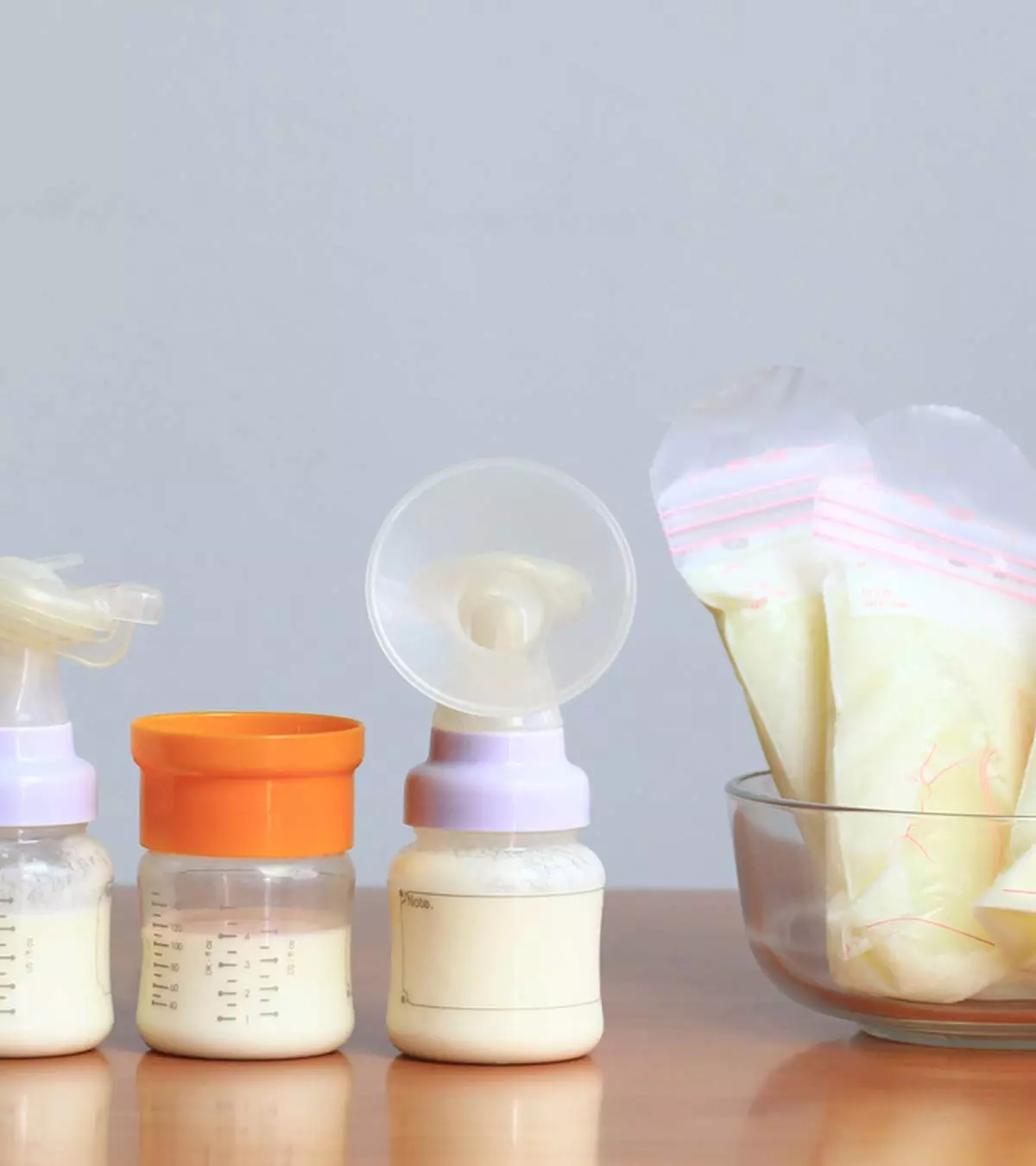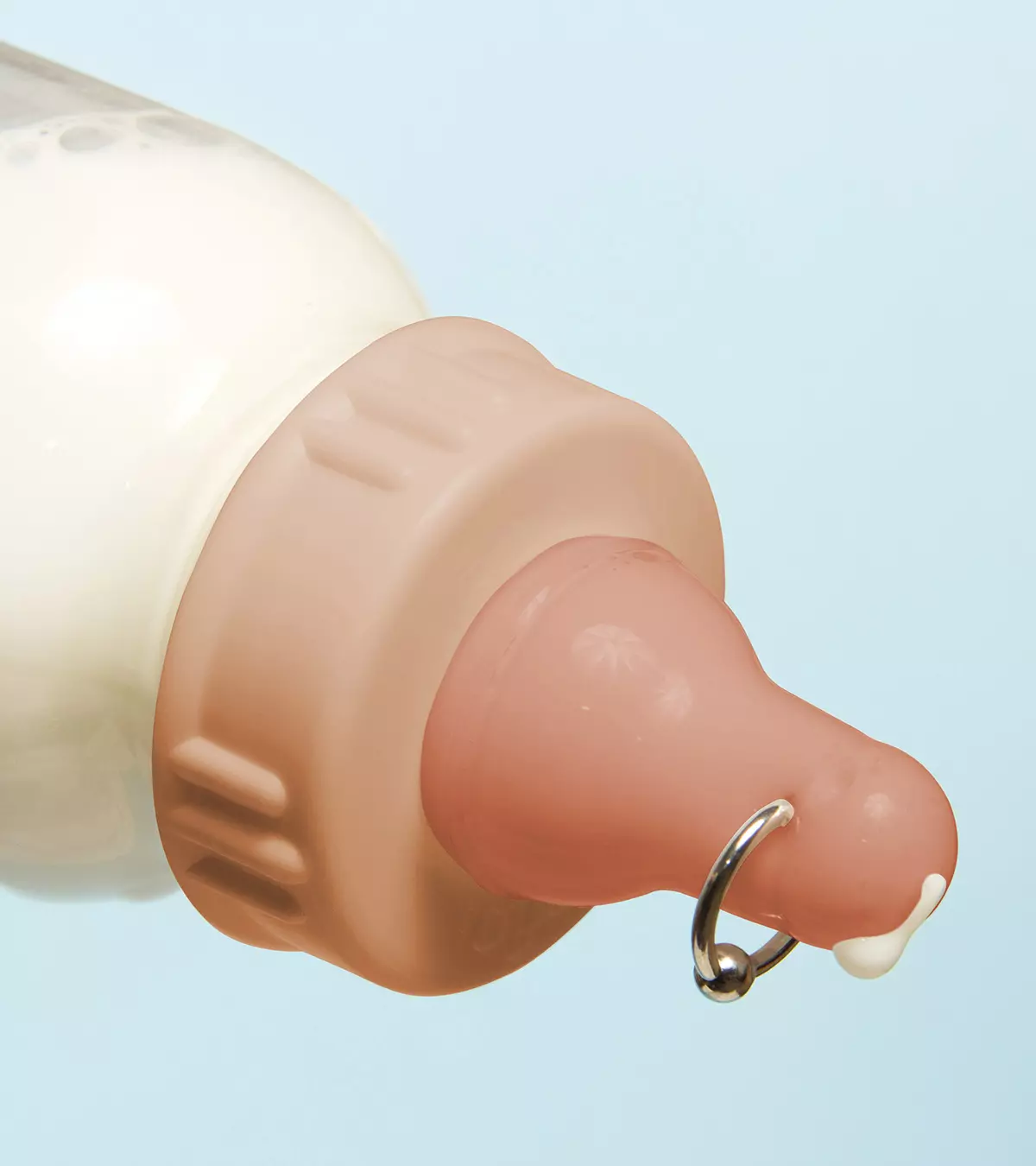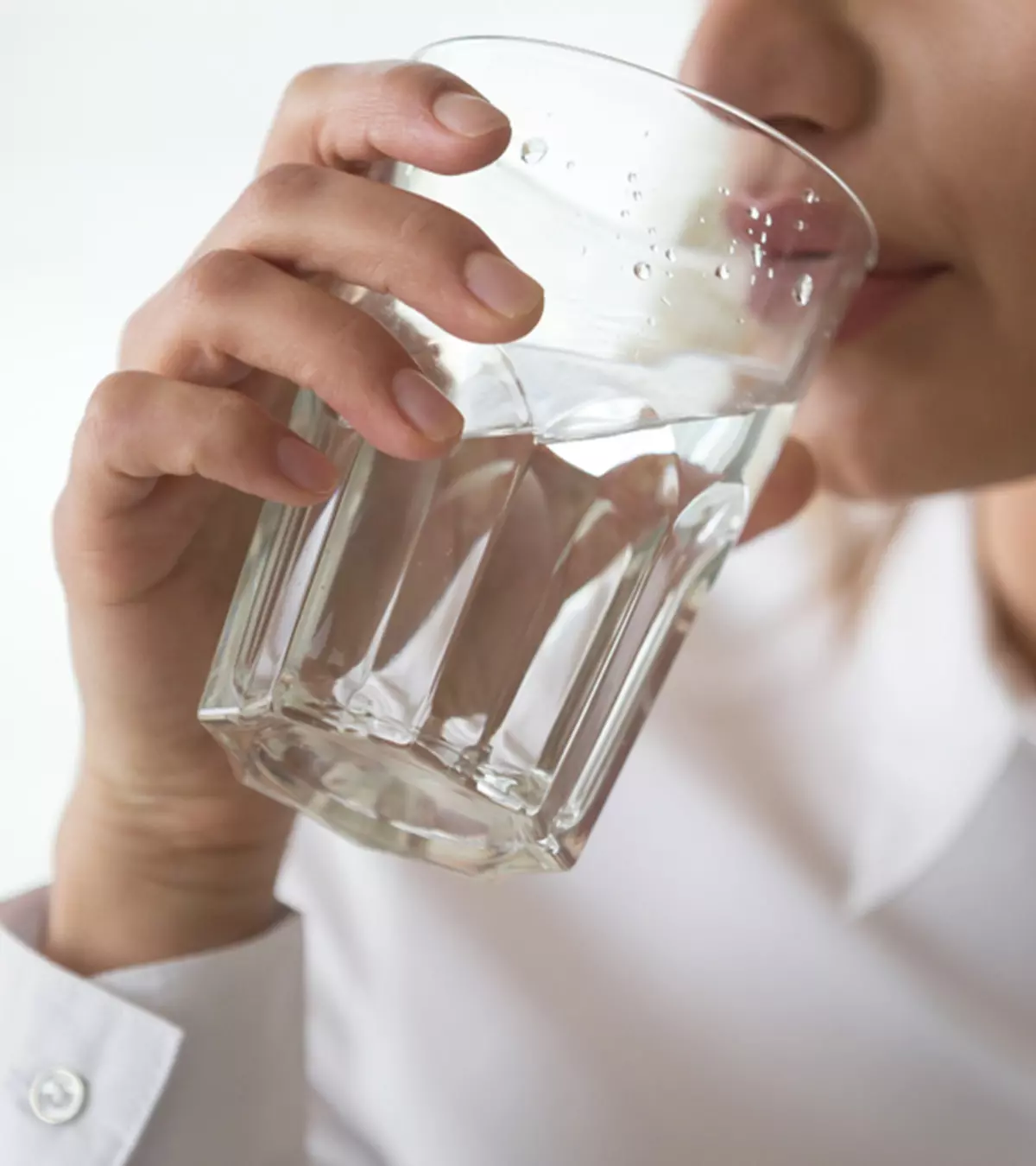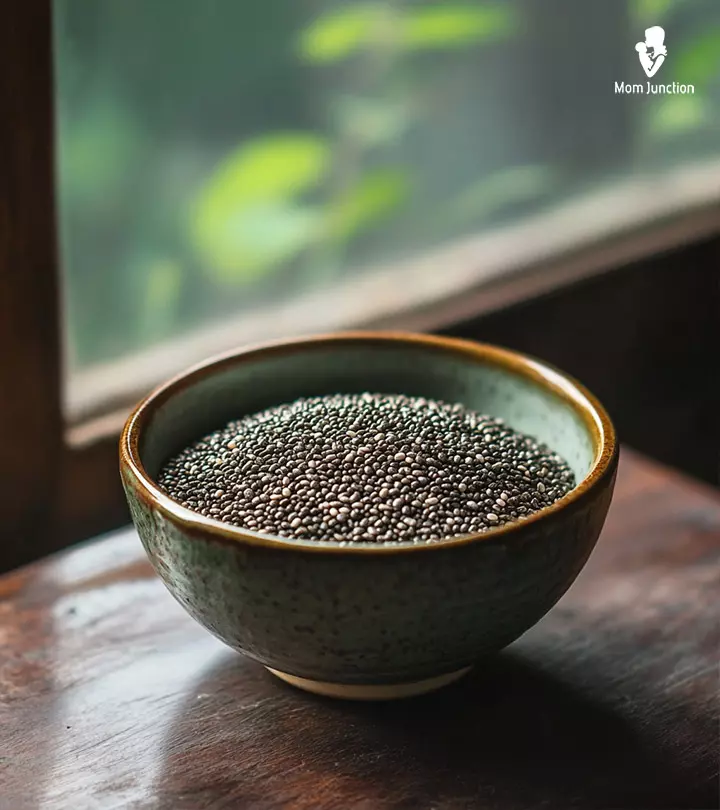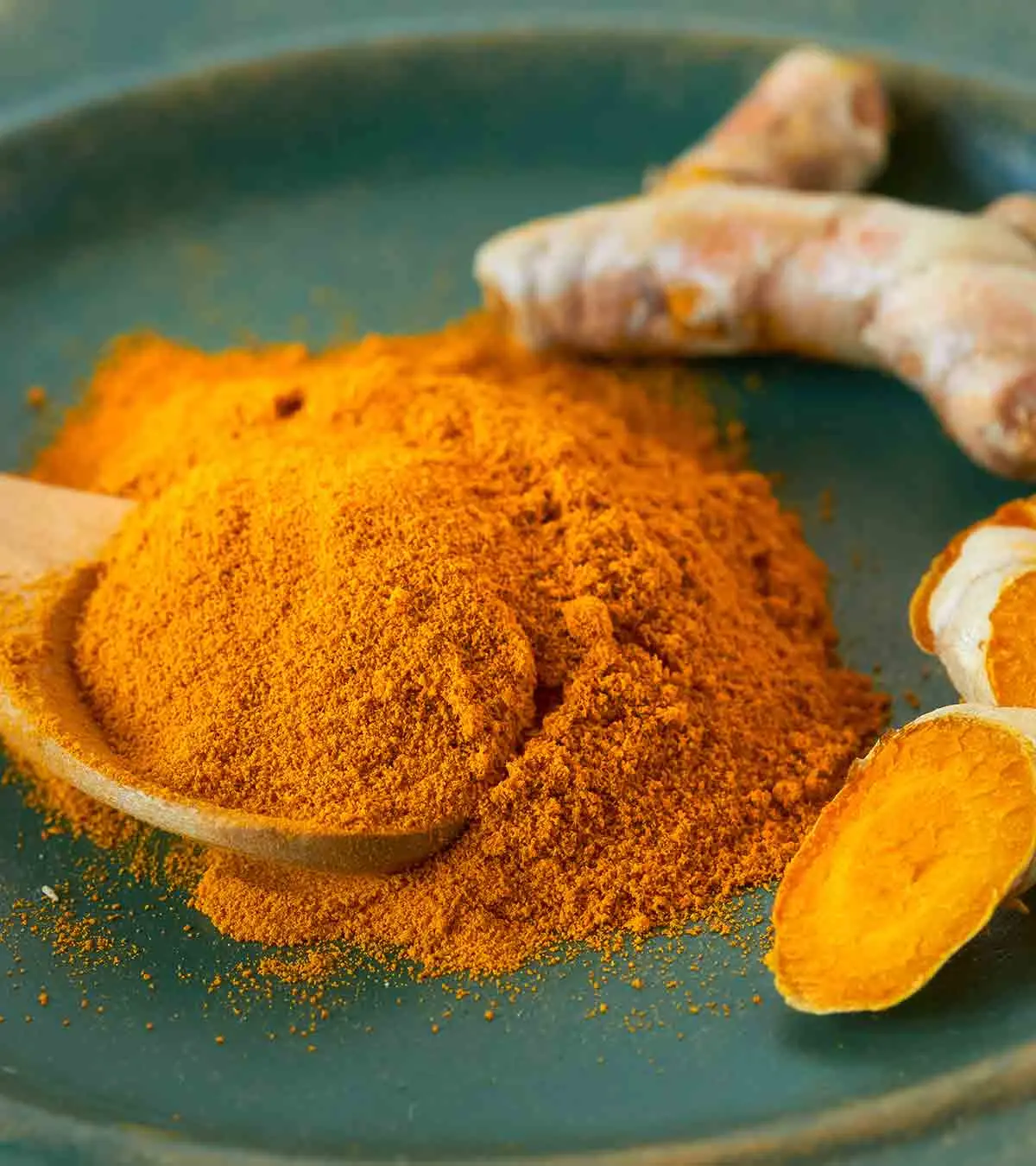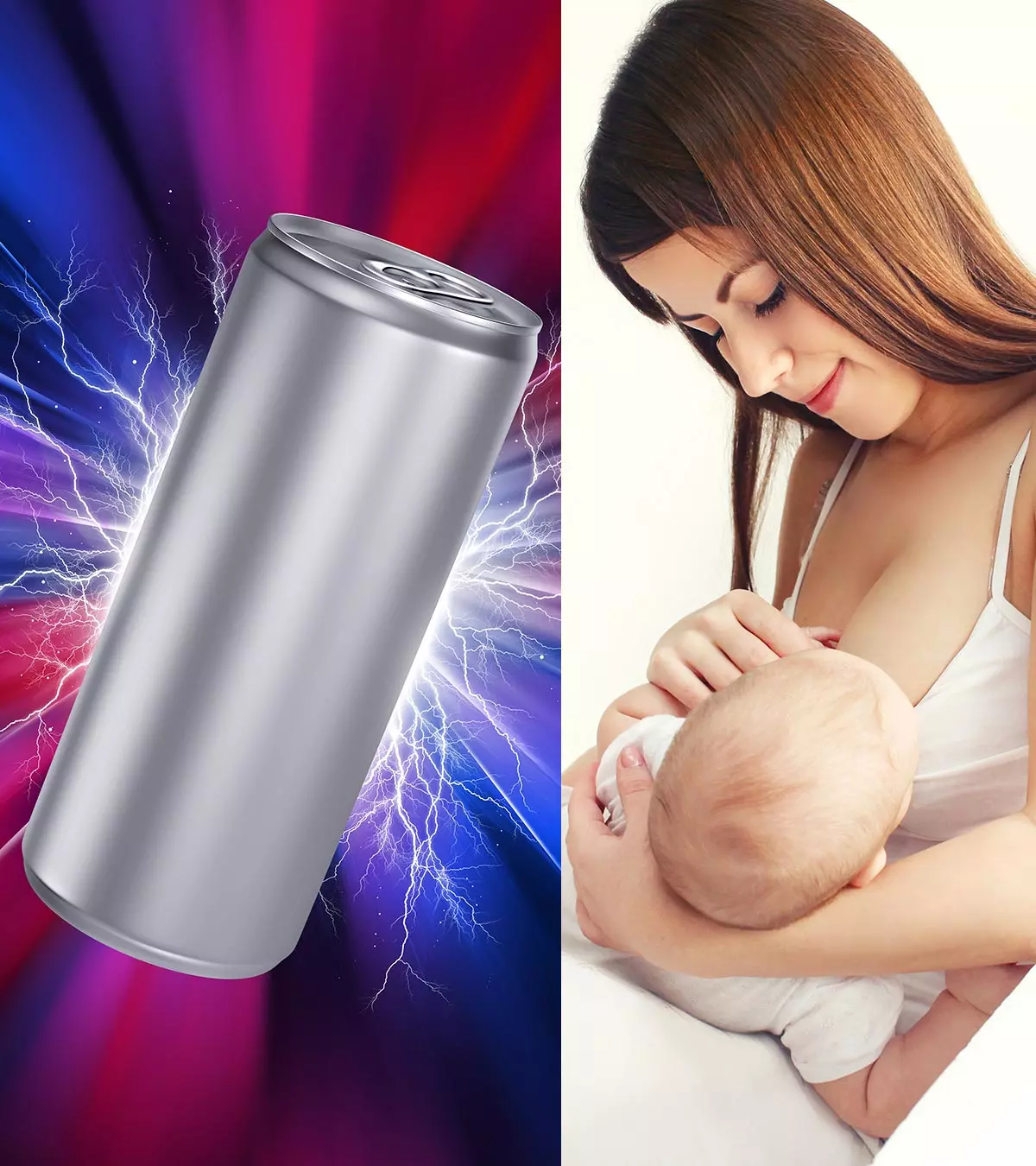
Image: MomJunction Design Team
Energy drinks are caffeinated beverages marketed as wonder products that increase stamina, boost concentration, and combat muscle fatigue (1). Since these claims are enticing, you may be tempted to consume energy drinks when breastfeeding to fight lethargy. However, you should understand the ingredients of these drinks before making a choice.
Since drinks aren’t healthy, regular consumption may affect you and your baby. Hence, pausing and contemplating your choices before reaching for an energy drink is worthwhile if your baby is still breastfeeding.
Keep reading to learn more about whether energy drinks are safe for nursing mothers, their ingredients, and better alternatives.
Key Pointers
- Energy drinks are highly caffeinated drinks with other stimulants that can pass into breast milk.
- Commercially available energy drinks have large amounts of sugar which may lead to weight gain and other health issues in lactating women.
- It is advised to keep the consumption in the limit as it may cause fussiness and irritability in babies in case of sensitivity.
- It is recommended to find alternative options in the form of healthy drinks such as natural juices and soups to retain energy levels while breastfeeding.
What Is An Energy Drink?
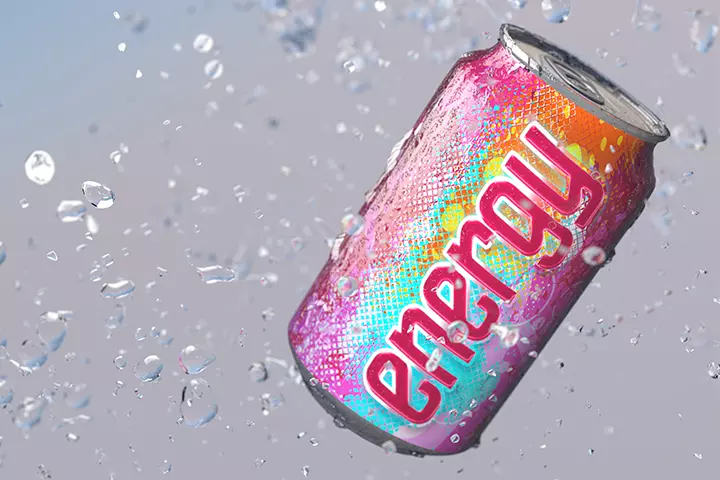
An energy drink is a beverage that is rich in caffeine and sugar. As per the ad blitzkrieg, the drink provides instant energy and stimulation. It may be carbonated or non-carbonated. Some energy drinks contain herbal extracts as well as amino acids (2).
Is It Safe To Have Energy Drinks While Breastfeeding?
Yes, you can consume energy drinks while breastfeeding. Read the label carefully and opt for energy drinks with less than 300 milligrams of caffeine. Excessive caffeine intake can negatively affect both you and your baby, so it’s important to be mindful of your consumption. It all comes down to moderation, just like drinking coffee while breastfeeding. Furthermore, experts recommend considering the duration, quantity, and quality of drinks consumed and their mixing habits. California-based childbirth and breastfeeding educator Mindy Cockeram says, “Most babies will tolerate moderate amounts of caffeine intake (200-300mg) by their breastfeeding mother. However, some babies are more sensitive. Look for symptoms in the baby and reduce intake if you find a correlation.” It is also important to check labels for ingredients, avoid potentially harmful components, and choose only safe and well-regulated energy drinks to reduce health risks for both mother and baby (3).
The International Sport Society recognized that the ingredients in energy drinks need further studies to establish their safety (3).
 Caution
CautionRead on to know more about the ingredients used to make these energy drinks.
Ingredients Present In Energy Drinks
1. Caffeine

Caffeine is a stimulant and an ergogeniciSomething that enhances performance. compound that raises the heart rate and blood pressure (4). The US Centers for Disease Control and Prevention (CDC) recommends a maximum daily intake of 300mg of caffeine for a breastfeeding mother (5). An energy drink usually contains 80-150mg of caffeine per eight ounces, which is equivalent to five ounces or approximately 140 grams of coffee (1).
If you are having coffee or any other caffeine-containing drinks, and also consuming an energy drink, you might be crossing the maximum threshold of caffeine intake.
 Research finds
Research findsResearch suggests that if a baby is caffeine sensitive, consumption of a higher quantity of caffeine might cause fussiness, irritability, and inability to settle in the baby. This might lead to poor feedings, as well (6). Hence, it is wise to avoid large doses of caffeine while breastfeeding.
Caffeine Content In A Few Energy Drinks
| DRINK | Serving Size (Oz.) | Caffeine content (mg) |
|---|---|---|
| Red Bull | 8.4 | 80 |
| Monster Energy Drink | 16 | 160 |
| 5-Hour Energy | 2 | 200 |
| Mountain Dew Kick Start | 16 | 90 |
| NOS Energy Drink | 16 | 160 |
| Rockstar Energy Drink | 16 | 160 |
| V8 Fusion Energy Drink | 8 | 80 |
| Starbucks Tripleshot Energy | 15 | 225 |
| Starbucks Refresher, Can | 12 | 50 |
Source: Center For Science In The Public Interest (7)
2. Other Ingredients
A few other ingredients present in energy drinks may also pose problems when the beverages are consumed excessively. The ingredients to consider are:
- Sugars are the second most common ingredient in energy drinks. High-fructose corn syrup or sucroseiSugar composed of glucose and fructose. acts as the main source of energy in these drinks. Long-term exposure to these sugars is associated with insulin resistance and obesity in the consumer. Also, fructoseiA simple sugar found in plants, also known as fruit sugar. might pass into breastmilk (8).
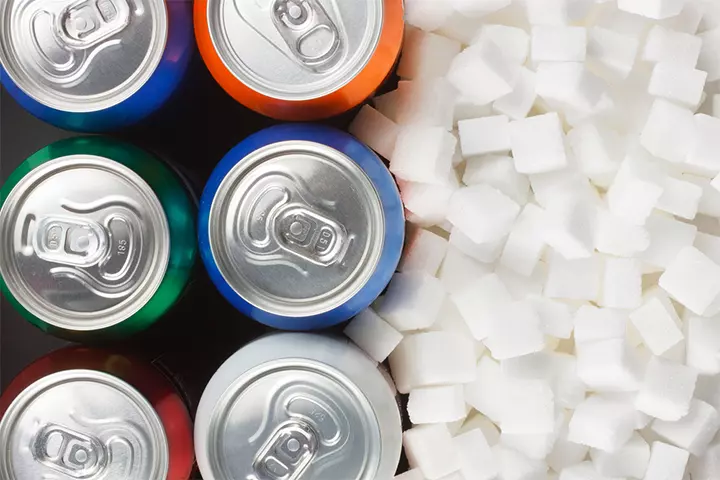
- Taurine is a sulfur-containing essential amino acid found in energy drinks (9). Breastmilk has high amounts of taurine, so breastfeeding mothers will not require its supplementation (10). However, the effects of taurine ingestion on babies via energy drinks are not well-documented.
- Herbs like ginseng and ginkgo bilobaiA plant native to China rich in antioxidants and has anti-inflammatory properties. are found in some of the energy drinks. Both these herbs are generally regarded as safe (GRAS) for consumption. However, the safety and efficacy of ginkgo and ginseng while breastfeeding are unknown (11) (12).
Apart from these, energy drinks also contain a few other ingredients such as guaranaiA plant native to the Amazon that is a common ingredient of energy drinks. , l-CarnitineiA chemical produced in the human brain, liver, and kidneys that helps turn fat into energy. , and antioxidants. The efficacy and safety of these ingredients during lactation are debatable. Moreover, the FDA does not warrant manufacturers to label the quantity of most of the ingredients in energy drinks. The only requirement stated is to list them as an ingredient.
Since the side-effects of these ingredients are not known, it is wise to consult your doctor if you are keen on having an energy drink while you are breastfeeding. If your doctor approves it, limit the intake to 16oz a day.
Health Implications Of Excessive Energy Drink Consumption
Breastfeeding mothers may struggle with irregular sleep patterns and often turn to energy drinks for relief. However, it’s important to understand the potential health risks associated with these beverages.
- High sugar and caffeine risks: Energy drinks often contain large amounts of sugar and caffeine, which can lead to health issues.
- Unlisted ingredients: Some energy drinks include herbal components that may not be clearly labeled, raising safety concerns for breastfeeding mothers.
 Research says
Research saysRead the labels for ingredients and sugar content. If possible, avoid taking energy drinks and prenatal vitamins to prevent health risks (13).
Alternatives To Energy Drinks
As the safety and efficacy of energy drink consumption during lactation stand questionable, it is suggested that lactating mothers consider these safer alternatives.
- Go for a cup of coffee (not more than two cups a day) or tea. Small amounts of caffeine in them can boost your energy without harming your baby. This way, you can cut down on many herbal ingredients and loads of added sugars in energy drinks. Decaffeinated coffee or tea in moderate quantities can also be good beverage choices. Remember to limit your caffeine intake to 300mg a day. You can also choose to drink decaf coffee while breastfeeding.

Note: Even this little amount of caffeine can be too much for some infants. Just observe your baby and go as per his reaction.
- Try healthy and natural juices and soups with a well-balanced meal. They could help in keeping your energy quotient high, prevent dehydration, and boost your immunity. Follow a balanced diet, drink water, and get some sunlight to rejuvenate your body.
 Quick tip
Quick tip- Homemade beverages like celery juice, lemon juice, and fruit-infused water are excellent alternatives that help maintain hydration levels while promoting health.
- Incorporate water-rich fruits and vegetables such as cucumbers, watermelons, and oranges to gain nutritional benefits and enhance hydration.
- Power naps can help fight weakness and gain extra energy.
- Try to follow an exercise routine after consulting your doctor to build your stamina gradually.

Frequently Asked Questions
1. Does caffeine in breast milk affect the baby’s sleep?
Caffeine passes into the breast milk, and babies get only 1.5% of the caffeine the mother ingests. Although the amount of caffeine that reaches the baby is small, the baby’s system takes longer to get rid of the caffeine. Hence, high caffeine intake by the mother may affect the baby’s sleep (15).
2. Does caffeine cause colic in babies?
Yes. Studies have shown maternal caffeine consumption is associated with colic symptoms in breastfed babies and infants (16).
3. How long do energy drinks stay in breastmilk?
Energy drinks contain caffeine which is found to enter the breast milk. The peak levels of caffeine in breast milk are known to occur between one to two hours after consumption. Therefore, it is best to time your consumption of energy drinks between feeds (15).
4. Do energy drinks affect a breastfeeding mother’s milk supply?
A small amount of energy drink will not affect breast milk production as it contains low amounts of caffeine. However, excessive intake can cause dehydration and affect milk supply (17).
5. Is it okay to drink energy drinks occasionally while breastfeeding?
Having energy drinks occasionally might be fine, but it’s essential to keep track of your total caffeine intake. Drink in moderation because excessive caffeine can impact you and your baby—it could also affect your milk supply and your baby’s sensitivity to caffeine.
6. How do I know if my baby is sensitive to energy drinks?
Consuming excessive energy drinks during breastfeeding may lead to increased fussiness or sleep disturbances in infants. According to experts from La Leche League International, premature infants and those under six months are more sensitive to caffeine (19). If your baby falls into these categories, exercise caution when consuming energy drinks while nursing and consult your pediatrician for personalized guidance.
You may use Ayurvedic medicine for kids as a natural treatment for different health conditions and overall growth and development. However, similar to most therapies and medicines, it should be considered only after consulting an Ayurveda expert to avoid adverse reactions, such as allergies or toxic reactions. By analyzing the child’s body constitution, and condition, the expert will recommend the right medicine and some lifestyle changes for effective treatment.
Infographic: Caffeine Content In Different Energy Drinks
If you love enjoying a soft drink once in a while or are guilty of sipping a cup of coffee once every few hours at work, you may be interested in these details. This infographic sheds light on the amount of caffeine in some popular drinks to help limit your consumption. Illustration: Momjunction Design Team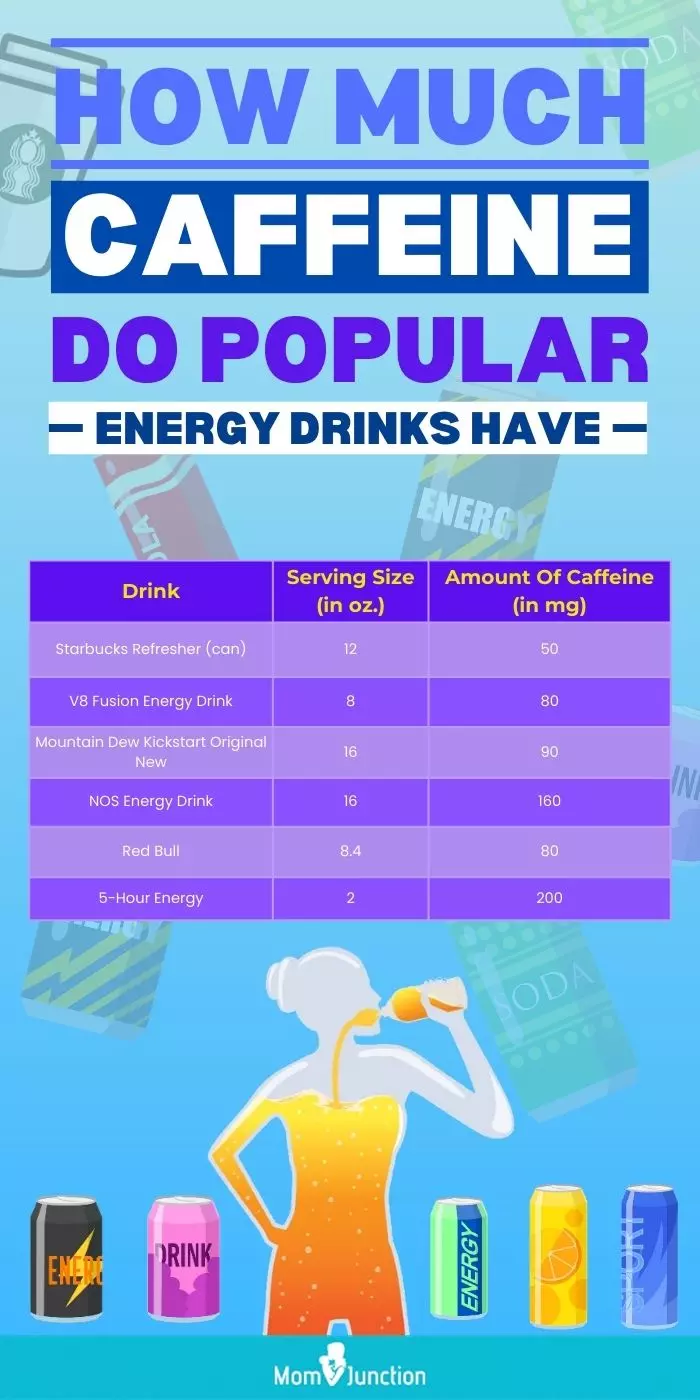
Illustration: Is It Safe To Have Energy Drinks While Breastfeeding?

Image: Dalle E/MomJunction Design Team
References
1. Ahmed Abdulrahman Alsunni; Energy Drink Consumption: Beneficial and Adverse Health Effects; National Center For Biotechnology Information (2015)
2. Waguih William Ishak et al.; Energy Drinks (Psychological Effects and Impact on Well-being and Quality of Life—A Literature Review); National Center For Biotechnology Information (2012)
3. Nahla Khamis Ibrahim and Rahila Iftikhar; Energy drinks: Getting wings but at what health cost?; National Center For Biotechnology Information (2014)
4. John P. Higgins et al.; Energy Beverages: Content and Safety; National Center For Biotechnology Information (2010)
5. Maternal Diet and Breastfeeding; Centers For Disease Control And Prevention (2024)
6. Breastfeeding and caffeine intake; Michigan State University
7. Caffeine Chart; Center for Science in the Public Interest
8. Michael I. Goran et al.; Fructose in Breast Milk Is Positively Associated with Infant Body Composition at 6 Months of Age; National Center For Biotechnology Information (2017)
9. Jonathan J Caine, Thomas D Geracioti; Taurine, energy drinks, and neuroendocrine effects; Cleve Clin J Med. (2016)
10. Taurine; Health Encyclopedia; University of Rochester
11. Ginseng; Drugs and Lactation Database; National Center For Biotechnology Information (2018)
12. Jean-Jacques Dugoua et al.; Safety and efficacy of Ginkgo (Ginkgo Biloba) during pregnancy and lactation; Research Gate (2006)
13. Janet Thorlton et al.;Energy Drinks: Implications for the Breastfeeding Mother; MCN. The American journal of maternal child nursing (2016)
14. Goun Jeong et al.; Maternal food restrictions during breastfeeding; Korean journal of pediatrics (2017)
15. Caffeine and Breastfeeding; La Leche League USA
16. Aimee McCreedy et al.; Effects of maternal caffeine consumption on the breastfed child: a systematic review; National Center For Biotechnology Information (2018)
17. 6 factors that won’t decrease your breast milk supply; The University of Texas Southwestern Medical Center
19. Will Caffeine Affect My Baby?; La Leche League USA
Community Experiences
Join the conversation and become a part of our nurturing community! Share your stories, experiences, and insights to connect with fellow parents.
Read full bio of Joanne Aubrey
- Mindy Cockeram is a board-certified lactation consultant and runs her private practice in South Carolina. She trained as an antenatal teacher with the National Childbirth Trust (NCT) in London, England and taught childbirth classes for the NCT and St Georges Hospital Trust. Later, she relocated to the US.
 Mindy Cockeram is a board-certified lactation consultant and runs her private practice in South Carolina. She trained as an antenatal teacher with the National Childbirth Trust (NCT) in London, England and taught childbirth classes for the NCT and St Georges Hospital Trust. Later, she relocated to the US.
Mindy Cockeram is a board-certified lactation consultant and runs her private practice in South Carolina. She trained as an antenatal teacher with the National Childbirth Trust (NCT) in London, England and taught childbirth classes for the NCT and St Georges Hospital Trust. Later, she relocated to the US.
Read full bio of Swati Patwal
Read full bio of Rohit Garoo
Read full bio of Shinta Liz Sunny










